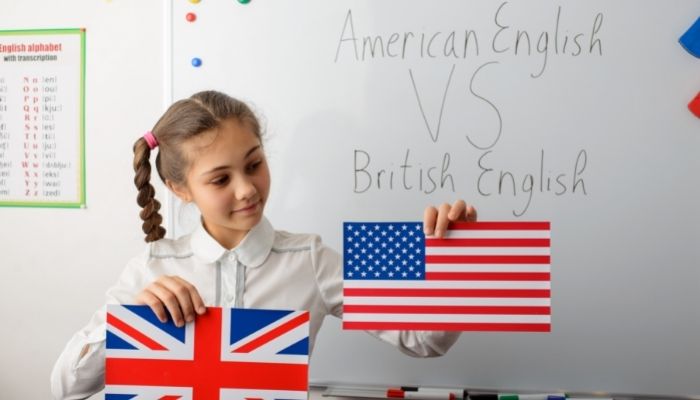Great site to keep my english skills updated for work and travel. I am really enjoying the lessons!
Maria C
 Argentina
Argentina


It’s hard to believe that “g’day mate”, “you alright?”, or “how’s it going?” are all different greetings in English to say “hello” or ask how someone is doing.
Many English language learners find it confusing to understand the difference between British, Australian, and American (from the United States) English. Although, it’s important to remember that these are three varieties of English that are more similar than different. These differences can help spice up your English language learning experience!
*Please note: when referring to “American English” this is specifically English spoken in the United States
MAJOR DIFFERENCE BETWEEN THE THREE TYPES OF ENGLISH:
The most obvious difference between the British, Australian and American English is in the accent (or pronunciation), especially with vowel sounds.
For example, American English uses a clear “r” sound (especially at end of words) and Australian and British English don’t pronounce a clear /r/ sound (especially the end of a word or syllable). In Australian or Britain the word “car” would be pronounced without the final “r” sound (i.e. “ca”) and “warmer” would be pronounced without the middle “r” sound (i.e. /wamer/).
Another major difference between American English and British or Australian English is the intonation when asking questions. One’s voice goes up at the end of a yes or no question with American English, but with Australian and British English one’s voice goes down.
There are also some major difference between vocabulary and spelling with the three different types of English. For example, in the United States and Britain they call two pieces of bread with a protein or vegetable in the middle a “sandwich” and in Australia they call this a “sanga.”
Below is a list of popular phrases or words that are commonly used in these three different English-speaking countries.
AUSTRALIAN ENGLISH:
“Aussie” refers to someone who’s Australian.
“Mate” means friend (“mate” is also used in British English).
“G’day” (pronounced “geh-day”) means “hello” or “how’re you?”
“Crikey!” or “Streuth!” (pronounced “krai-kee” and “strooth”) are both exclamations of bewilderment, shock or surprise.
“How ya going?” means “how’re you?”
“Fair dinkum” or “dinky die” are both used to say something is true.
“True Blue” is a way to say “the real thing.” Originally it meant to be patriotic, but today it means genuine or authentically Australian.
BRITISH ENGLISH:
“Bloody” means “very.” This is a great way to show emphasis when you’re speaking.
“Rubbish” literally means “garbage” or “trash.” If you don’t like something this is the perfect word to use to say it’s worthless or untrue.
“Lovely” is a common British word to use if you want to express affection or approval for someone or something (commonly used amongst the older generation; specifically women).
“Pissed” means someone has drank a large amount of alcohol and is intoxicated or drunk (not to be confused with American English which uses this word to say someone is extremely angry or irritated).
“Bodge” is a word used to say that a repair job is of a low-quality or is not done well.
“Chuffed to bits” is a common way in Britain to say you’re very pleased with someone or something.
“Cheeky” means playful or mischievous.
“You alright?” or “alright?” is a common way to say “hello!” in Britain. You can simply respond by nodding your head or saying “Hi.” This sounds like a question, but it’s simply a greeting.
“Fancy a cuppa’?” means “would you like a cup of tea?” As many people already know, tea is a huge part of British culture and it’s very common to be offered a cup of tea if you visit a British friend.
AMERICAN ENGLISH:
“How’s it going?” or “what’s up?” is a common way for people from the United States to ask “how’re you?” or “how’re you doing?”
“Awesome” or “cool” are popular ways to express that you think someone or something is amazing or wonderful.
“Costs an arm and a leg” means that something is really expensive.
“Oh my God”, “oh my gosh” or “OMG” are all ways to emphasize surprise or shock.
“Hang out” is a way to talk about spending time at a certain place or with someone.
“Chill out” means to relax.
“Have a blast” is a way to say that someone or something is fun.